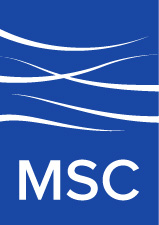A Movement Strategy Center Project Advisor Shares her Retreat Experience

Meet Alejandra García Lezama, a member of MSC’s Movement Infrastructure Innovation Center (MIIC) and project advisor to Alliance for Felix Cove (A4FC). She recently attended A4FC’s annual retreat. A4FC, a fiscally sponsored project, is working to protect and restore the ancestral homelands of the Felix Family, the last Coast Miwok/Támal-ko family to reside on the western shores of Tomales Bay at Felix Cove in Point Reyes National Seashore.
Here, she shares her reflections and insights from the retreat, highlighting the profound impact of cultural practices, strategic planning, and community collaboration.
As a Mexican immigrant woman I have seen and experienced first hand what it means to lack access and resources to thrive. Bringing back the right to dream to the communities I’ve served is what keeps me going. I see my work at MSC as a project advisor as a conduit to ensure both.
Back in April 2024, I had the pleasure of being invited to attend Alliance for Felix Cove’s strategic planning retreat held at Inverness, CA on the southwest shore of Tomales Bay. Feeling connected to the earth where A4FC’s founder Theresa Harlan’s ancestral home is located gave me a deeper understanding of the importance of their work to re-Indigenize the Point Reyes National Seashore. I also learned about decolonized strategic planning tools, such as building a logic model using a plant metaphor instead of traditional columns and arrows. These approaches broadened my perspective on strategic planning.
Embracing Cultural Competency
Each morning, we began our day by asking our ancestors to guide us and provide us with the tools needed to advance A4FC’s mission. I talked to my grandfather in a way I had not since he passed. This practice was new to me, and I felt deeply honored to be invited to think about my lineage as a present source of wisdom and support. It was a moving experience that grounded our daily activities in a deep sense of purpose and connection.
A key discussion point was the decision of when to seek a 501(c)(3) status. Many of our Fiscally Sponsored Projects (FSPs) grapple with this decision. I was struck by A4FC’s perspective of using MSC as a shield against incorporating colonial governance structures, particularly regarding a board. Instead, they have the Strawberry Sisters Circle, a governance structure where Harlan, their Executive Director, participates as an equal member. Decisions are made as “relatives,” and reflect their values and cultural practices. For many Indigenous women, the fiduciary responsibilities of being a board member are daunting, and this model presents a more accessible approach. MSC is striving to decolonize internal processes and practices and we hope to continue learning from our FSPs as subject matter experts in this, and many other areas of growth.

Building Beloved Community with Funder Involvement
A4FC has a unique and ongoing relationship with the Kalliopeia Foundation, Three years ago, Harlan and Tania M., from Kalliopeia, took a walk at Tamal-liwa (Tomales Bay) and talked about A4FC’s dream to build an organization that could serve as a conduit to return Indigenous land to Indigenous hands. Kalliopeia then began a partnership with A4FC, working toward mutual goals with dedicated resources for A4FC’s growth and development. Since then, Tania M. has participated in every annual strategic planning retreat at the invitation of A4FC, with the goal to be a partner and not just a funder. This dynamic exemplifies Community-Centric Fundraising (CCF) principles in action by placing donors alongside the community and nonprofit staff, working together as partners.

During the retreat, I established a connection with Kalliopeia and made plans to talk with Tania M. in-depth to learn more about the Foundation’s work, share about MSC, and explore collaborative opportunities; there are projects at MSC that would benefit from new funding, and we may be able to offer fiscal sponsorship services to new organizations. As always, we are happy to expand our ecosystem and bring folks together when the time is right — this is how we build Beloved Community.
Additionally, one of the Strawberry Sisters is seeking a fiscal sponsor for another organization she’s involved with. These interactions underscore the abundant opportunities for interconnection within our ecosystem.
Deepening Relationships and Understanding Challenges
The most important part of my visit was the opportunity to establish deep relationships with attendees and understand the mission of A4FC. I gained a clearer understanding of the challenges and pain points A4FC faces. Navigating philanthropic systems can feel oppressive and colonial, particularly for Indigenous communities. As a Mexican, I have experienced the rigidity of American systems and have tried to navigate them on behalf of others. However, I now realize that even with this perspective, I still carry biases as someone who is not being Indigenous.

I was particularly proud to help A4FC clarify their outcomes for the upcoming year. Providing strategic support like this is crucial for the development of any organization.
Overall, the retreat was a deeply enriching experience that reinforced the importance of cultural competency, meaningful funder relationships, and strategic business development. It also highlighted the need for continuous self reflection and adaptation to better support the unique needs of our projects and communities. I left feeling connected to myself in a way I had not felt in a while and I promised myself to continue the remembrance process of ancestral knowledge.

